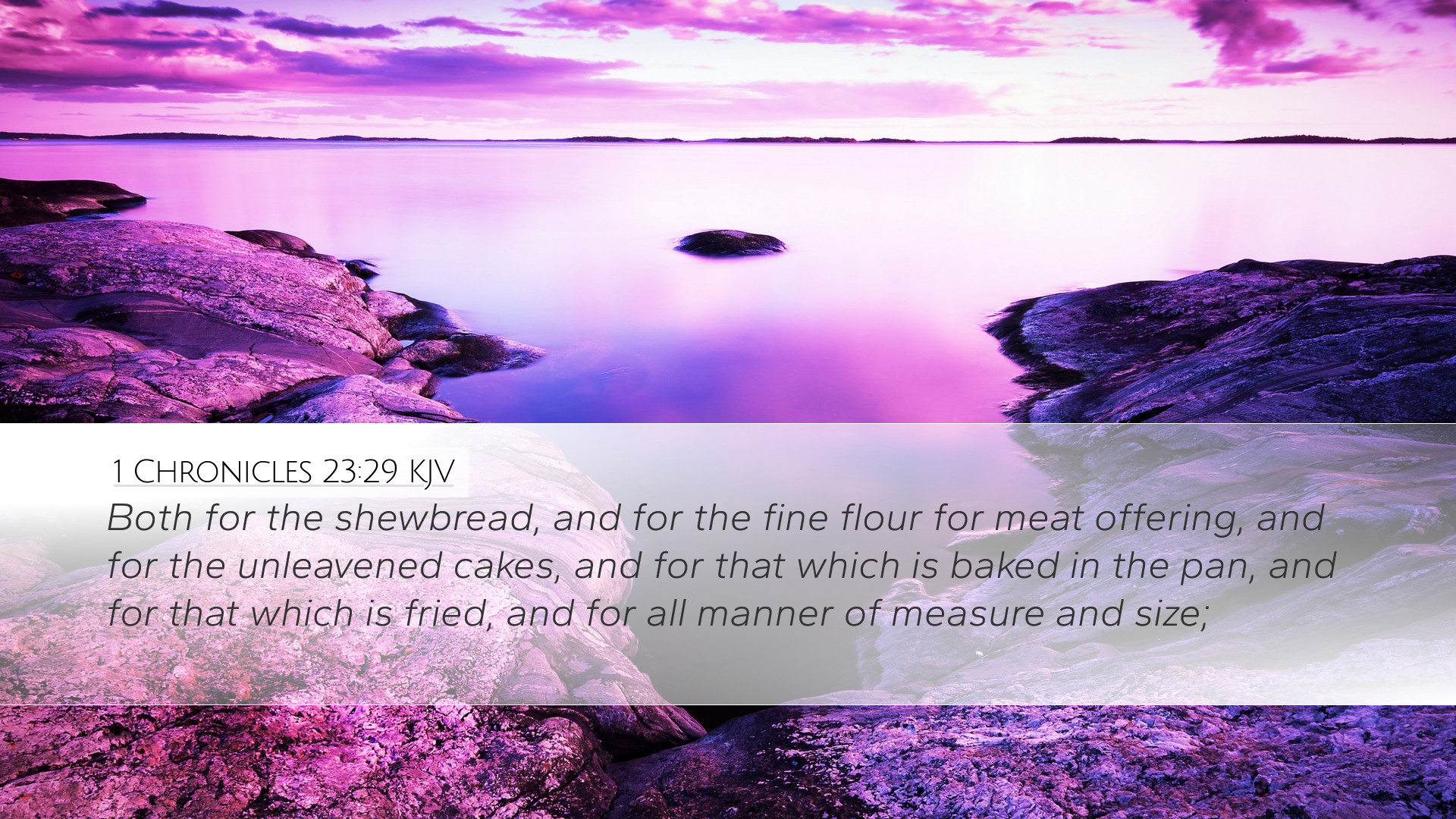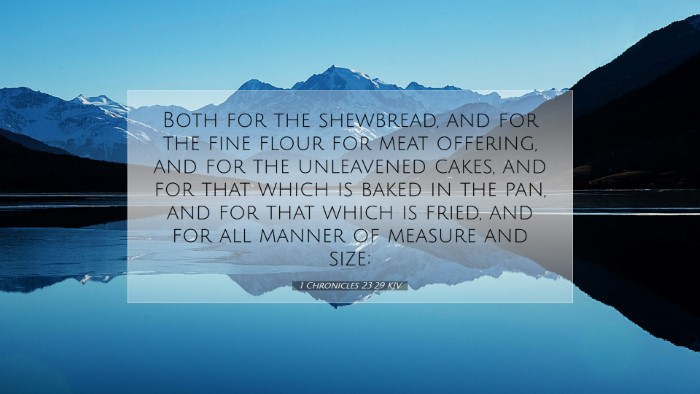Commentary on 1 Chronicles 23:29
Bible Verse: “And to stand every morning to thank and praise the Lord, and likewise at even;” (1 Chronicles 23:29)
Contextual Overview
This passage is part of a larger narrative concerning the organization of the Levites by King David. David, nearing the end of his reign, establishes a system of worship in the Temple that would ensure consistent and organized service to God. The Levites, appointed for temple service, were seen not just as assistants but as essential to the spiritual life of Israel.
Exegesis and Interpretation
1 Chronicles 23:29 encapsulates the daily responsibility placed on the Levites, emphasizing the duality of their service—morning and evening. This verse leads us to consider the significance of continual worship and the Levitical duties.
Morning and Evening Worship
Commentators such as Matthew Henry highlight the importance of these designated times for worship. Morning and evening prayers symbolize the completeness of devotion and the necessity of constant communion with God. The day is initiated with praise to God, acknowledging His sovereignty and mercy, while the evening serves as a time for reflection and gratitude.
The Role of the Levites
Albert Barnes elaborates on the responsibilities of the Levites as those who facilitate the sacrificial system and maintain the sanctity of worship. Their duties extend beyond mere rituals; they are called to be leaders in spiritual matters and examples of holiness. This call to worship is pivotal for fostering a culture of reverence among the people of Israel.
Thankfulness and Praise
Both Matthew Henry and Adam Clarke emphasize that the acts of thanking and praising the Lord are not simply protocols but vital components of the faith experience. Clarke denotes that gratitude cultivates a relationship with God, transforming the worshiper’s heart and leading to a deeper understanding of God's providence.
Theological Reflections
This verse encourages a robust theological reflection on the nature of worship:
- The Nature of Worship: Worship is not confined to a single location or time; it is a 24/7 endeavor that permeates all aspects of life. This passage illustrates that worship should be intrinsic, recurrent, and deeply rooted in the life of believers.
- Corporate vs. Personal Worship: The Levites represent a collective worship ethos, yet the call to worship invites every individual to participate in praising God publicly and privately. This dual approach strengthens community and personal faith.
- The Significance of Timing: Establishing specific times for worship encourages discipline and intentionality in a believer’s life. The Levites’ role in morning and evening services teaches the importance of starting and ending the day focused on God.
Practical Applications for Worship Leaders
Understanding 1 Chronicles 23:29 has practical implications for worship leaders and pastors today:
- Create a Rhythm of Worship: The example set by the Levites encourages modern church leaders to establish regular worship times and create environments where both corporate and individual worship thrive.
- Integrate Thankfulness in Worship Services: It’s vital to weave elements of thankfulness into every service, reminding congregants to recognize God’s hand in their lives and instill a regular practice of gratitude.
- Encourage Personal Devotions: Teaching congregations about the significance of daily morning and evening prayers can help members cultivate a personal relationship with God.
Conclusion
1 Chronicles 23:29 serves as a poignant reminder of the essential nature of worship in the life of believers. The Levites' call reflects a broader invitation to all followers of God to engage in consistent, intentional acts of praise and thanksgiving. Through adherence to this scriptural mandate, communities and individuals can foster richer spiritual lives centered around the attributes of God, ultimately leading to holistic worship experiences that span from the individual heart to the corporate body of Christ.


